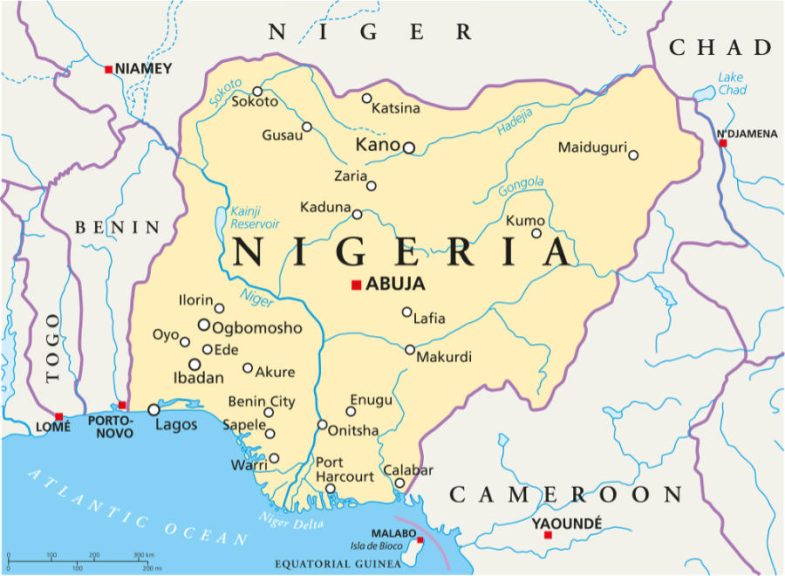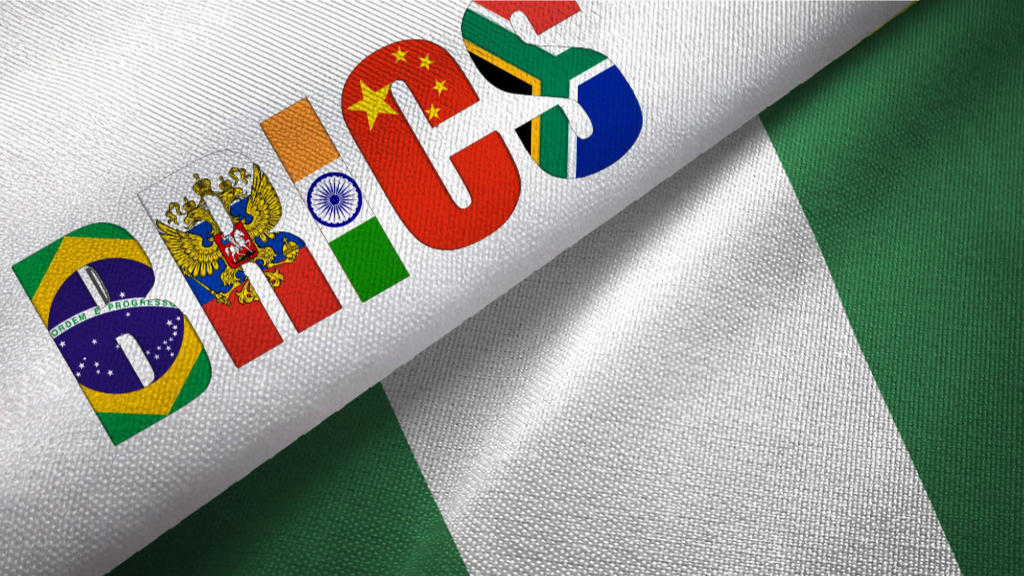Nigeria has officially joined the BRICS economic bloc as its ninth partner state, according to the Brazilian Foreign Ministry, who made the announcement on Friday (January 17). Nigeria joins Belarus, Bolivia, Cuba, Kazakhstan, Malaysia, Thailand, Uganda, and Uzbekistan in this category, which permits active participation but excludes voting rights. Partner status is seen as a preclude to full membership. The BRICS full members are Brazil, Russia, India, China and South Africa, along with Egypt, Ethiopia, Indonesia, Iran, and the UAE.
Nigeria is Africa’s fourth-largest economy and the world’s sixth-most populous nation with over 228 million people. It has a GDP (PPP) of 1.45 trillion. Its economy grew by about 3.2% in 2024, higher than Germany at 0.2%, France at 1% and the United States at 1.5%.
The Brazilian government stated that “In exercising its pro tempore presidency of BRICS, the Brazilian government announced on January 17, 2025, the formal admission of Nigeria as a partner country of the grouping. Nigeria has convergent interests with other members of BRICS and an active role in strengthening South-South cooperation and in reforming global governance.”
Nigeria’s participation in BRICS gives the bloc footholds in North, South, East, West and Central Africa.

Nigeria’s economy is diverse, with significant contributions from key industries. The oil and gas industry, Africa’s largest, contributes 7.24% to GDP and over 90% of export revenues through crude oil, LNG, and refined products. Agriculture employs 35% of the workforce and contributes 23.3% to GDP, producing cassava, yams, cocoa, and palm oil, with efforts to modernize and add value. Telecommunications and technology account for 15.5% of GDP, featuring one of Africa’s fastest-growing telecom markets and a thriving tech hub, especially in fintech. Manufacturing, at 11% of GDP, spans cement, food processing, and steel, supported by “Made in Nigeria” initiatives. Trade and services, 16.5% of GDP, include retail, finance, and real estate, while Nollywood, the second-largest film industry globally, boosts the entertainment sector. The government is prioritizing economic diversification, focusing on solid minerals, renewable energy, and infrastructure to reduce oil dependency. Urbanization and population growth are fueling demand in construction, housing, and real estate.
Nigeria is a key member of the African Continental Free Trade Area (AfCFTA), which is fostering intra-African trade and economic integration. As a founding member of the Economic Community of West African States (ECOWAS), the country benefits from regional trade facilitation and cooperation. Global trade agreements like the World Trade Organization (WTO), the African Growth and Opportunity Act (AGOA) with the United States, and bilateral agreements with countries such as China and India bolster Nigeria’s international trade and investment ties.
While the bilateral trade relationship between Nigeria and Russia has fluctuated in recent years, the countries continue exploring opportunities for economic collaboration. In 2021, their trade turnover reached just over US$1 billion, although this halved in 2022 due to the impact of sanctions upon bilateral logistics routes. 2024 bilateral shows some recovery and is estimated at being about US$650 million.
The main products that Russia exports to Nigeria are refined petroleum, frozen fish, and Wheat, while Nigeria exports flowers, perfume plants and other oil seeds, mainly used in the fragrance industry. Both countries are looking to develop trade, and especially in the energy sector. A Russian consortium has also recently signed a Memorandum of Understanding (MoU) with the Nigerian government to restart operations at Nigeria’s Ajaokuta Steel Plant.
Further Reading
Uganda: BRICS Is Transformative For New Members, Boosts Investment and Innovation

 Русский
Русский













